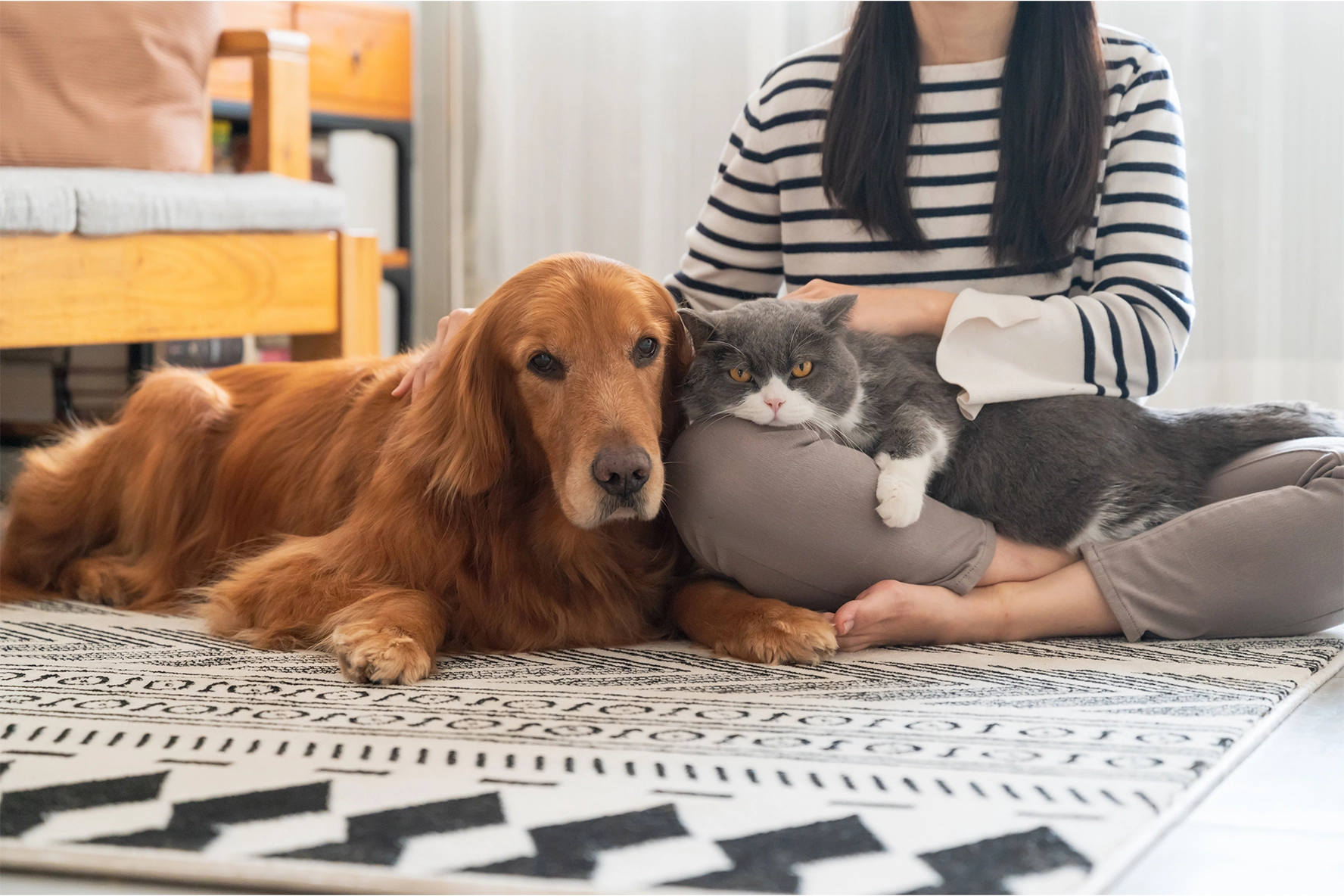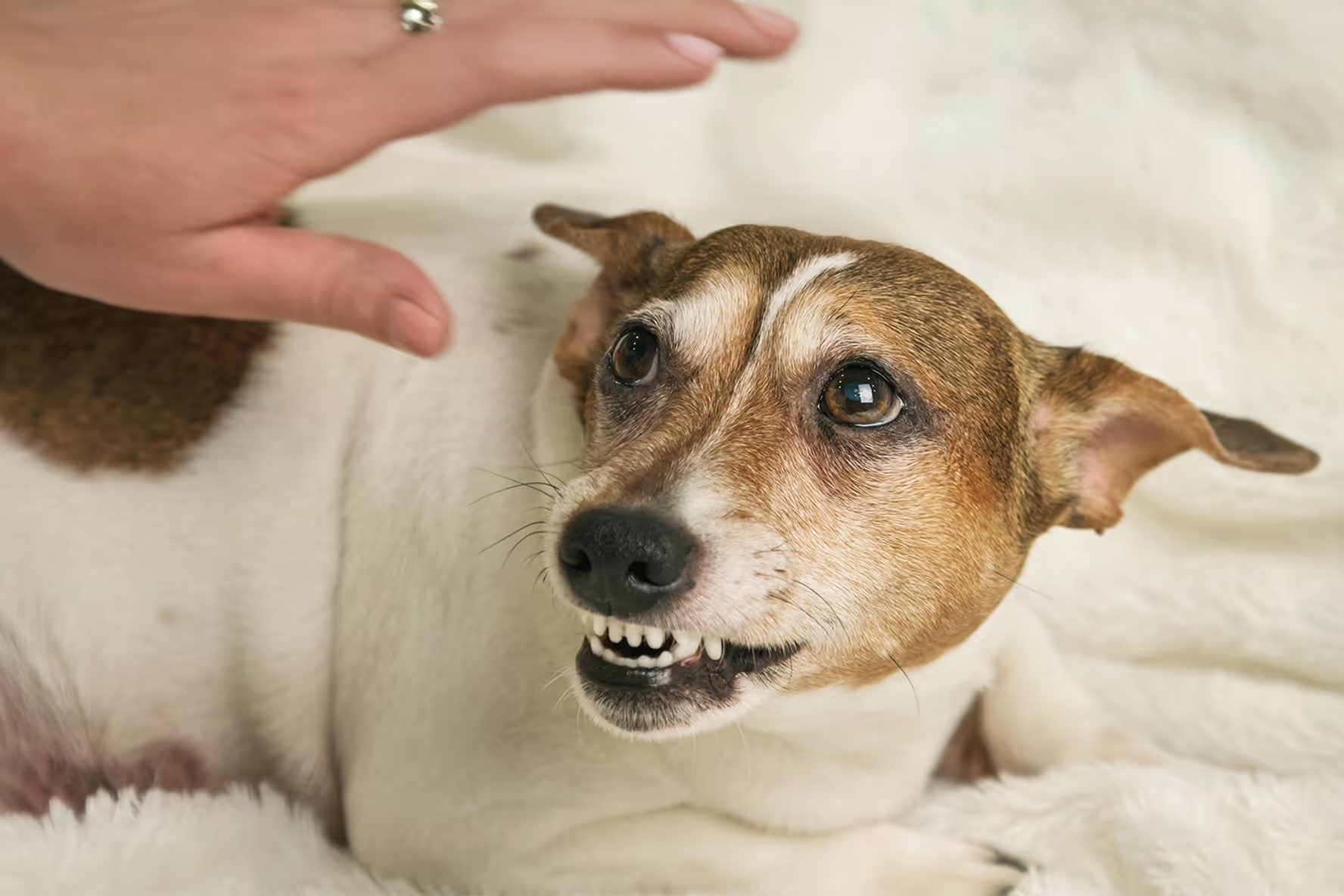
It’s widely known that dogs handle chemotherapy treatment significantly better than humans do. Not only is the treatment process often structured to ensure that the patient’s body experiences the least amount of stress possible, but their bodies are also able to process it in a less disruptive way. As such, dogs are less likely to suffer from adverse side effects from chemotherapy.
However, the most common side effects that dogs experience are tummy problems, be that digestion issues like vomiting and diarrhea, or loss of appetite.
It’s important to support your pup during their treatment as much as you can. A good proactive step (or the next step, if you notice dietary issues with your pooch, is to work with your vet to find nourishment that can work in tandem with their treatment while not upsetting their tummies any more than necessary.
How Chemotherapy Affects Your Dog’s Appetite and Needs
While it’s a huge comfort to know that chemotherapy won’t affect your dog to the same degree as it will a human patient, it’s still important to know that it can make some big changes to your dog’s health.
Treatment will affect every patient in their own way but it’s not uncommon for about 15-20% of dogs to experience some impact on their digestive system. Side effects like nausea, vomiting or diarrhea, and a loss of appetite are possible and will make a difference to the care your dog needs during their treatment.
Specific ways that chemotherapy affects a dog’s digestive system
Nausea, vomiting, and diarrhea:
Chemotherapy affects rapidly dividing cells in the body, and cells in the gastrointestinal (GI) tract are also rapidly dividing. This makes GI cells more sensitive to chemotherapy which can lead to stomach upset. It does not matter if chemotherapy is given IV or by pill, it can affect the stomach and intestines. Some chemotherapy can also affect the GI in other ways, but overall, most dogs do well with chemotherapy, and many do not get tummy upset.
Loss of appetite:
When there’s already some tummy upset, it’s not surprising for a patient to not be enthusiastic about eating. Even if a dog is not showing visible signs of stomach problems like vomiting or diarrhea, if your dog doesn’t have much interest in eating it’s a sign that their medications are affecting them internally. Decreased appetite can be a sign of nausea. If this loss of appetite goes on regularly for the duration of their treatment plan, it’s common to notice weight loss in your pooch as well. There are many medications available which can help your pet feel better and start to eat.
Dehydration:
Alongside a loss of appetite, a chemotherapy patient may be discouraged from drinking water. Dogs are generally pretty good at following the signs their bodies give them to get water or food, but when it seems like their body isn’t working quite right, they’re more likely to ignore those signals
Often, your vet will prescribe medication to give at home with your dog’s meals to combat some of the strain on the digestive tract. It’s important to talk with your vet about any of the symptoms your dog is experiencing; if these symptoms are adding additional stress, they are able to prescribe anti-nausea medication, appetite stimulants, or other medications to help with digestion and get your dog back to a normal bowel movement.
Best Anti-Cancer Foods for Dogs During Chemotherapy Treatment
While there is no single miracle ingredient that will ensure your loving dog doesn’t develop cancer, there are plenty of foods that are known to either lessen the likelihood of cancer, or else boost other aspects of your pet’s health to help them navigate their treatment more smoothly.
Well-balanced diet of nutrients is important for your pet at any stage of their life but especially when they are ill. Dogs need a mixture of protein, fat, fiber, and other nutrients from fruit and vegetables just like we do. Cats have an even higher need for protein rich diets. While giving your pet healthy foods, make sure they are getting enough calories, so they do not start to accidentally lose weight. There are some foods dogs should not eat like onion, garlic, chocolate, and some nuts.
Omega-3’s, antioxidants, and immune boosting foods also have a benefit for doggy diets while they are in treatment.
- Omega-3 is known to help limit inflammation and help reduce some of the pain a dog may feel.
- Having antioxidants added to their diet can also help combat cellular damage caused by cancer growth.
- Be very careful with antioxidants and speak with your veterinarian before starting these as they can counteract certain chemotherapy drugs making them less effective.
- One of the other common side effects of chemotherapy treatment is a weakening of the immune system, adding some immune boosting ingredients like dog safe fruits and vegetables is very helpful to protect your pet from additional ailments during their treatments.
Talk with Your Vet About a Customized Diet
While there are foods that are, in general, healthier for dogs in non-specific cases which were covered in the previous section. It’s important to talk with your vet about your dog’s individual needs. It is possible that your dog may need more of one thing and less of another because of the type of cancer that they have or other metabolic conditions and illnesses. Your vet can help guide you on making the best decisions for your pet.
It’s important to note that more is not always better. Some dogs may only need to add some toppers to their normal kibble, which can act as encouragement to eat the meal as well as provide an added nutritional boost to their treatment plan. Other dogs may benefit from a new diet entirely, switching out a kibble-based meal to go to something more ingredient-focused and nutrition-based.
Get Specialized Help—Find a Canine Nutritionist
Finding a nutritionist can be a helpful step in your dog’s dietary journey through their chemotherapy treatment. You can look for a veterinary nutritionist to help you develop a custom nutrition plan for your dog during their treatment. Often, a canine nutritionist will work with your vet to get a full understanding of your dog’s medical history to be able to find the best combination of ingredients and even the best pre-made dog food for your pet.
You can find a canine nutritionist in your area or one that can help your pet remotely by doing remote consultations with you and your vet. It’s important to find a ACVIM board-certified nutritionist to help your pet; VetSpecialists.com has a search function that lets you find specialists who are certified around the world. There are many opinions online from people who are not veterinarians or have any certification with animals but believe their diet is the best. Be careful and investigate the person giving the advice to make sure they are qualified to help your pet.
Canine nutritionists work on an individual level with your pet to assess their specific needs and nutritional requirements, taking into consideration their medical history, current diet, lifestyle, and treatment plan, as well as your budget for feeding them to make the best plan forward. Sometimes this involves developing personalized diet plans with homemade meals or even commercially available foods.
Some pet parents may get the help of a nutritionist just to assess their dog's needs and make suggestions on a single occasion, while other pet parents can have a nutritionist monitor their dog’s progress on the diet and how it’s impacting their health, to make adjustments as the diet continues. Monitoring the dog’s process on a new diet during chemotherapy can also help with making adjustments due to the impact the medications are taking on the dog at that time, as some treatment plans give multiple medications at different points in the treatment that can affect the digestive system differently.
Of course, it is important to consider the cost of additional support from a specialist, and the support of a veterinary nutritionist is not always the most affordable. It never hurts to check with your primary care vet and veterinary oncologist about how they can help you support your dog’s nutrition during treatment.
Finish Chemotherapy Treatment With a Plan
Dogs that have been diagnosed with a form of lymphoma now have options for getting their treatment to be as efficient as possible by using ImpriMed’s Personalized Prediction Profile. ImpriMed runs drug sensitivity tests on your dog’s live cancer cells against the most commonly used to combat lymphoma. And they use artificial intelligence to combine the drug sensitivity data and other biological information to find the most effective treatment for your individual pet. The profile helps your oncologist know what drug options would work, an estimate of likelihood that your dog will go into complete remission after 1 or 2 cycles of CHOP protocol, as well as the likelihood of experiencing early relapse after the protocol.
Find out more about ImpriMed’s Personalized Prediction Profile here.


